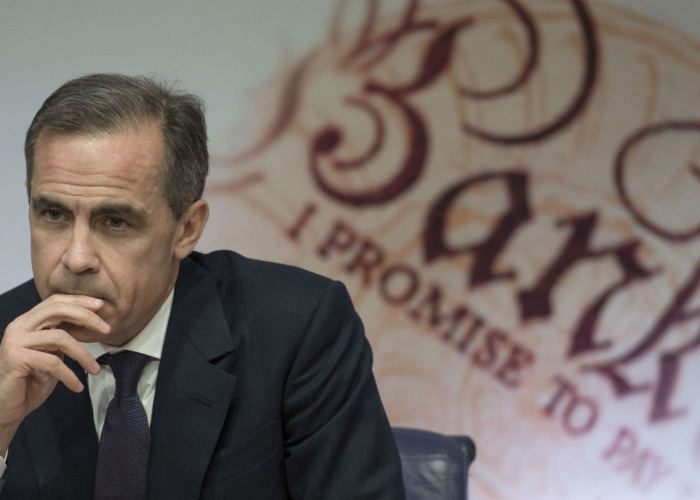Bank of England holds firm on inflation and interest rates

No major surprises in latest Inflation Report.
The Bank of England is sticking to its guns on where inflation and interest rates are heading.
The bank unveiled its latest quarterly Inflation Report, where it forecast that inflation could turn negative in the short term but said it will start to rise again at the end of the year as price cuts drop out of consumer price measurements.
Governor Mark Carney said: “Recent developments support the MPC’s [Monetary Policy Committee's] view that a temporary period of falling prices…should not be mistaken for the potentially damaging process of widespread and persistent deflation.”
It believes people are spending money, instead of holding back waiting for prices to fall further, which is one of the main causes of deflation.
And that spending is likely to be boosted by cheaper food and energy prices, and buoyed by cheaper oil prices, in the short term at least.
The bank reiterated its belief that inflation will return to its 2% target in the next two years.
In terms of interest rates, the bank believes the productivity slack in the economy is set to disappear, despite downgrading its growth forecast. This, coupled with rising employment and rising inflation, is likely to lead to interest rate rises, but not until next year at the earliest.
An overall average of forecasts compiled by the bank shows inflation at 2% by the second quarter of 2017, with interest rates at 1.7%.
What this means for your money
Mortage interest rates continue to fall to new record lows, with the short-term outlook that this will continue. So if you want to take advantage, it’s a good time to take a look at what’s on offer, even if you’re only getting towards the end of a fixed rate period.
For savers, the outlook remains pretty bleak. There was a run of good Cash ISAs at the start of the new tax year in early April, but these have all now disappeared.
It continues to pay to look beyond cash savings accounts to the likes of current accounts paying up to 5% and peer-to-peer savings. If you’re aged 65 or over, don’t forget the NS&I 65+ Guaranteed Growth Bonds, also known as Pensioner Bonds, are still available, but only until this Friday (15th May).
More from loveMONEY.com:
The politicians in charge of your money
Comments
Be the first to comment
Do you want to comment on this article? You need to be signed in for this feature